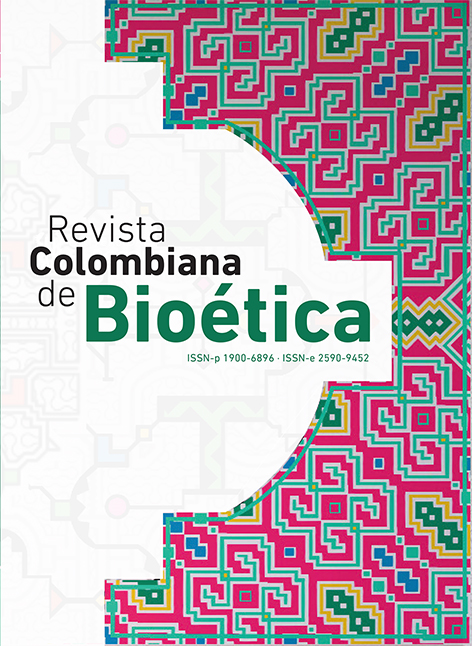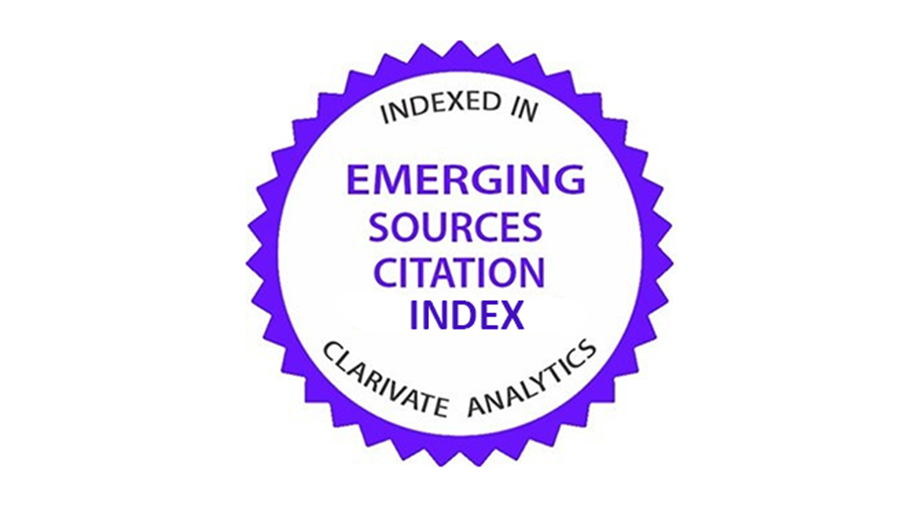Epistemología, salud y género: diálogos entre la cardiología y las ciencias sociales
DOI:
https://doi.org/10.18270/rcb.v15i1.3091Palabras clave:
salud, género, epistemología, epidemiología, cardiología, feminismo, teoría feminista del punto de vistaResumen
La discusión y distinción entre las categorías sexo y género en las investigaciones médicas se ha consolidado como un aporte significado desde las teorías feministas y la filosofía de las ciencias. No obstante, la distinción entre las categorías de sexo y género, en la estructuración del conocimiento médico, no fue identificada sino hasta la década del 70’. A pesar de este hallazgo, continúa siendo prevalente el diseño de investigaciones médicas que no contemplan tales diferencias, por lo que se hace un uso indistinto entre ambas categorías y se genera un conocimiento a partir de este error categorial. Varias investigadoras en el área de la salud y la filosofía de las ciencias han elaborado marcos de referencia para la identificación de dichos errores, al igual que sus consecuencias en las políticas de la salud pública, especialmente en enfermedades como el infarto agudo de miocardio. Por lo tanto, a partir de un análisis interseccional entre las ciencias de la salud y la filosofía de las ciencias, se expondrá en este texto algunas reflexiones acerca de esta problemática.
Descargas
Referencias bibliográficas
Garcia, M., Mulvagh, S. L., Merz, C. N. B., Buring, J. E., & Manson, J. E. (2016). Cardiovascular disease in women: Clinical perspectives. Circulation Research, 118(8), 1273-1293. https://doi.org/10.1161/CIRCRESAHA.116.307547
Hammarström, A., & Hensing, G. (2018). How gender theories are used in contemporary public health research. International Journal for Equity in Health, 17, 34. https://doi.org/10.1186/s12939-017-0712-x
Harding, S. (1996). Ciencia y feminismo. Madrid: Ediciones Mortada.
Harding, S. G. (1991). Whose science? whose knowledge?: Thinking from women's lives. Ithaca, N.Y.: Cornell University Press.
Humphries, K. H., Izadnegadar, M., Sedlak, T., Saw, J., Johnston, N., Schenck-Gustafsson, K., . . . Bairey Merz, C. N. (2017). Sex differences in cardiovascular disease - impact on care and outcomes. Frontiers in Neuroendocrinology, 46, 46-70. https://doi.org/10.1016/j.yfrne.2017.04.001
Intemann, K., & Melo-Martín, I. (2014). Addressing problems in profit-driven research: How can feminist conceptions of objectivity help? European Journal for Philosophy of Science, 4, 135-151. https://doi.org/10.1007/s13194-013-0079-9
Kendel, F., Gelbrich, G., Wirtz, M., Lehmkuhl, E., Knoll, N., Hetzer, R., & Regitz-Zagrosek, V. (2010). Predictive relationship between depression and physical functioning after coronary surgery. Archives of Internal Medicine, 170(19), 1717-1721. https://doi.org/10.1001/archinternmed.2010.368
Krieger, N. (1996). Inequality, diversity, and health: Thoughts on "race/ethnicity" and "gender". Journal of the American Medical Women's Association (1972), 51(4), 133-136.
Krieger, N. (2003). Genders, sexes, and health: What are the connections-and why does it matter? International Journal of Epidemiology, 32(4), 652-657. https://doi.org/10.1093/ije/dyg156
Krieger, N. (2012). Methods for the scientific study of discrimination and health: An ecosocial approach. American Journal of Public Health, 102(5), 936-944. https://doi.org/10.2105/AJPH.2011.300544
Lloyd-Jones, D., Adams, R. J., Brown, T. M., Carnethon, M., Dai, S., De Simone, G., Wylie-Rosett, J. (2010). Heart disease and stroke statistics--2010 update: A report from the american heart association. Circulation, 121(7), e46-e215. https://doi.org/10.1161/CIRCULATIONAHA.109.192667
Melo-Martín, I., & Intemann, K. (2007). Can ethical reasoning contribute to better epidemiology? A case study in research on racial health disparities. European Journal of Epidemiology, 22, 215-21. https://doi.org/10.1007/s10654-007-9108-3
Ministerio de Salud y Protección Social. (2019). Análisis de situación de salud (ASIS) Colombia, 2018.
Mortensen, O. S., Bjorner, J. B., Newman, B., Oldenburg, B., Groenvold, M., Madsen, J. K., & Andersen, H. R. (2007). Gender differences in health-related quality of life following ST-elevation myocardial infarction: Women and men do not benefit from primary percutaneous coronary intervention to the same degree. European Journal of Cardiovascular Prevention and Rehabilitation: Official Journal of the European Society of Cardiology, Working Groups on Epidemiology & Prevention and Cardiac Rehabilitation and Exercise Physiology, 14(1), 37-43. https://doi.org/10.1097/HJR.0b013e3280114f00
Regitz-Zagrosek, V. (2017). [Gender and cardiovascular diseases: Why we need gender medicine]. Der Internist, 58(4), 336-343. https://doi.org/10.1007/s00108-017-0214-3
Regitz-Zagrosek, V. (2006). Therapeutic implications of the gender-specific aspects of cardiovascular disease. Nature Reviews. Drug Discovery, 5(5), 425-438. https://doi.org/10.1038/nrd2032
Regitz-Zagrosek, V. (2011). Sex and gender differences in symptoms of myocardial ischaemia. European Heart Journal, 32(24), 3064-3066. https://doi.org/10.1093/eurheartj/ehr272
Regitz-Zagrosek, V. (2012). Sex and gender differences in health. science & society series on sex and science. EMBO Reports, 13(7), 596-603. https://doi.org/10.1038/embor.2012.87
Rivera, M. (2017). Mujeres y pobreza: Una discusión entre universalismo y el paternalismo. Revista Colombiana De Bioética, 11, 62. https://doi.org/10.18270/rcb.v11i3.2161
Ruiz, M. T. (2004). Sesgos de género en el esfuerzo terapéutico. Gac Sanit 18 (1): 118-25. https://doi.org/10.1157/13062260
Ruiz, M. T. (2009). Sesgos de género en la atención sanitaria. Universidad de Alicante. Escuela Andaluza de Salud Pública. Alicante: 2009.
Shannon, G., Jansen, M., Williams, K., Cáceres, C., Motta, A., Odhiambo, A. Mannell, J. (2019). Gender equality in science, medicine, and global health: Where are we at and why does it matter? The Lancet, 393(10171), 560-569. https://doi.org/10.1016/S0140-6736(18)33135-0
Zakiniaeiz, Y., Cosgrove, K. P., Potenza, M. N., & Mazure, C. M. (2016). Balance of the sexes: Addressing sex differences in preclinical research. The Yale Journal of Biology and Medicine, 89(2), 255-259.
Zucker, I., & Beery, A. K. (2010). Males still dominate animal studies. Nature, 465(7299), 690-690. https://doi.org/10.1038/465690a
Publicado
Cómo citar
Número
Sección
Licencia
Los autores que publican en esta revista están de acuerdo con los siguientes términos:
Los autores conservan los derechos de autor y garantizan a la revista el derecho de ser la primera publicación del trabajo al igual que licenciado bajo una Licencia Creative Commons Atribución – No Comercial 4.0 Internacional, que permite a otros compartir el trabajo con un reconocimiento de la autoría del trabajo y la publicación inicial en esta revista.
Las condiciones de la licencia pueden consultarse en este vínculo.
Los autores pueden establecer por separado acuerdos adicionales para la distribución no exclusiva de la versión de la obra publicada en la revista (por ejemplo, situarlo en un repositorio institucional o publicarlo en un libro), con un reconocimiento de su publicación inicial en esta revista.
Se permite y se anima a los autores a difundir sus trabajos electrónicamente (por ejemplo, en repositorios institucionales o en su propio sitio web) antes y durante el proceso de envío, ya que puede dar lugar a intercambios productivos, así como a una citación más temprana y mayor de los trabajos publicados (Véase The Effect of Open Access) (en inglés).














